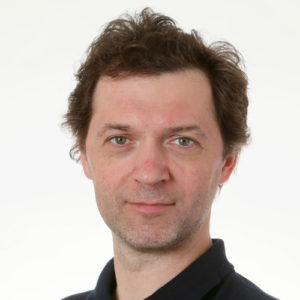
-
School Faculty of Science and Technology
-
Department Computer Science
-
Location London
Research activities
Current Teaching
Current PhD students:
Silviu Tudor Marc, Hyperparameter Control in Deep Learning Neural Networks. Director of studies.
Completed PhD students:
Chwalinski, P., Intrusion detection with Clustering and Information Theoretic measurements. Director of studies. Completed in 2014.
Parvizi, A., Automatic Concept Addition to Ontologies Aided by Semantics. Director of studies. Completed in 2012.
Nadh, K., Modelling Associative Memory with Cell-Assemblies. 2nd supervisor. Completed in 2011.
Jamshed, F., Symbol Grounding with Cell-Assemblies. 2nd supervisor. Completed in 2011.
Yurinskiy, D., A Dempster-Shafer Theory Inspired Logic. Director of studies. Completed in 2009.

